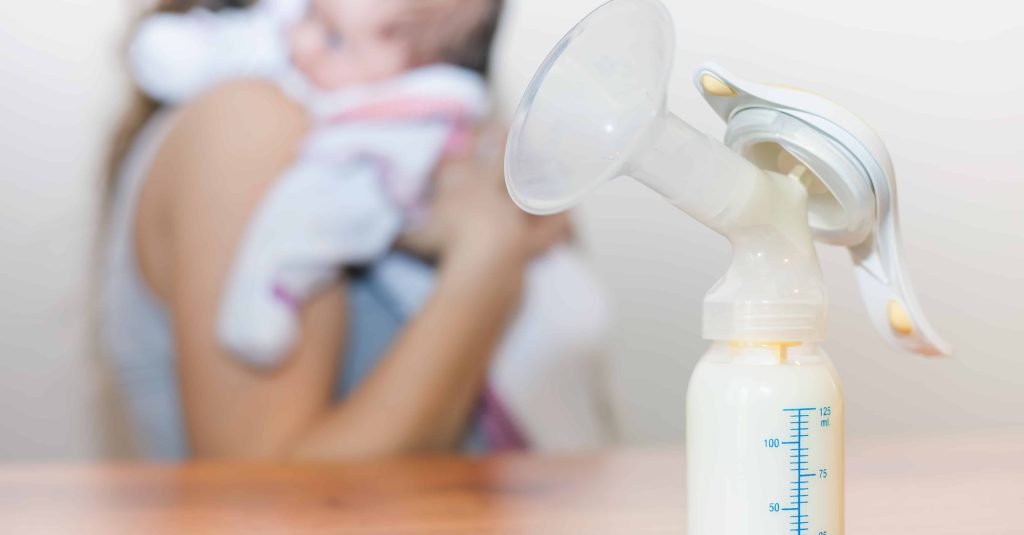Nutritionist Elizabeth González is the author of “Mama Slow” (Aguilar), a nutrition guide for future mothers who want to take care of themselves and care for themselves from a more natural and conscious perspective.

The registered nutritionist and graduate in Food Science and Technology, Elizabeth González, had a very integrated culture of effort to get where she dreamed. Sometimes without thinking about their health first. The summer she finished her doctoral thesis on “the behavior of taking supraphysiological doses of folic acid” – the pregnancy vitamin – something began to fail in her body. He suffered a deep thrombosis in the subclavian vein.
From then on, he experienced a profound transformation that made him slow down and change the pace. Her first big dream had always been to be a mother, but no matter how many doctors she visited, they all told her the same thing: it would be very difficult for her to be a mother.
The registered nutritionist and graduate in Food Science and Technology, Elizabeth González, had a very integrated culture of effort to get where she dreamed. Sometimes without thinking about their health first. The summer she finished her doctoral thesis on “the behavior of taking supraphysiological doses of folic acid” – the pregnancy vitamin – something began to fail in her body. He suffered a deep thrombosis in the subclavian vein.
From then on, he experienced a profound transformation that made him slow down and change the pace. Her first big dream had always been to be a mother, but no matter how many doctors she visited, they all told her the same thing: it would be very difficult for her to be a mother.
The key is in each of us and not in all the tasks, diets and unfulfilled lists. After motherhood, my own motherhood and that of all the women I accompanied further reinforced all this, which can perhaps be called slow nutrition. It’s actually a journey back to ourselves.
When did you decide to write the book and what definitely pushes you to do it?
I wanted to share with other women many years of research work and experience. I had seen the great transformation that happens in people’s health and lives when they change their diet, and I didn’t want that to stay only in the office.
I wanted it to be more available and for my children to be able to have this power when they needed it. Information is the most powerful thing we can have to be free and to take care of ourselves and who we love.
The journey of motherhood begins long before you become a mother. Fertility is a path that can sometimes become complicated. How important is it to lead a quiet, healthy life and nutrition?
I always say, and my patients have taught me, that the preconception period is a gift. And I really think about it. Before we arrive, our children push us to take care of ourselves and take care of ourselves like never before. This has a huge effect on our fertility, on the quality of our oocytes and the health of our reproductive system, but also on our mood and overall health.
I am sorry that many times we miss it or consider it bad luck. Creating a fertile pantry is a gift.
Many expectant mothers start taking care of themselves just when they want to get pregnant, but in the book, you suggest that changes must be integrated beforehand. How soon should we do it?
-The scientific evidence speaks of 3 years before; however, many women may not have even considered it so far in advance. My advice is that we learn to take care of our health and our reproductive system as something habitual in our day to day.
Just like we learn a lot of subjects that we will never use. And hopefully we have more and more information about all this before doing it when going to an assisted reproduction center. I hope this book will contribute to that.
What basic habits would you recommend to increase fertility?
-Know our menstrual cycle, our fertility window and build a fertile pantry, knowing what ingredients to include daily, which ones help us at all times to, for example, promote implantation or so that the uterus is ready. This makes all the difference. In the book you can find this in detail.
-The phase of pregnancy is a great opportunity to start working on something that is talked about a lot nowadays such as the “bond”. Why is it so important to do it already from pregnancy and what are the long-term benefits?
-Bonding with our baby is key to the survival of both. This is something that happens naturally and really animally. The problem is that we disassociate ourselves when we give more importance to all the advice and external information.
During pregnancy the intuition of the woman is on the surface, and everything connected in a unique and exceptional way to ensure the survival of the baby. We have given it value, a lot of value, because it will be key to feel if something is not going well, to live the birth or for the necessary bond to breastfeed and take care of our child.
-In this book you dismantle some myths, for example, that in pregnancy you have to eat for two. You say you have to choose for two. How do you choose two?
When you’re pregnant and want to choose what to eat, think about what you’d give your baby if he were sitting there with his beautiful face, his skin soft and hungry. I’m sure you’d give him the best. Well, it’s just that, when you eat during pregnancy you are nurturing your baby, choose the best. That’s why it’s so important to have the power of information.
-There are studies that show that many pregnant women have vitamin deficiencies. Why do you think it happens? What are we overlooking?
-In the vast majority of occasions during pregnancy, we talk about the weight that the pregnant woman takes and control analyzes are done. You are also given a huge dangerous food restrictions sheet and are advised to eat fruits and vegetables. And that’s it. This to a woman who may have nausea or little appetite or is even at rest… The pregnant woman is not informed of everything she can eat, how to combine it, for example, to prevent gestational diabetes, anemia or to have a healthy postpartum.
A lot of truthful, serious nutritional information is missing. The internet search engine is not the place to find this information because it can have adverse effects in such a delicate period. Therefore, we need to take all the evidence that there is, the professional experience and provide the woman who wants to do the best possible, the tools and information to know how to do it.
-The postpartum is the great forgotten, you say in your book. Why do you believe it?
“I love postpartum. I have never seen more incredible changes in women’s health than during this period, when you really understand what is happening and accompanied by proper nutrition. It’s a great period for the rest of a woman’s life and you don’t talk about it.
Once she gives birth, you wait 40 days and it has to be the same as before, behave as always, do the usual, eat as always, think as always … This, besides being impossible, is a pity. Because we miss a period too powerful because of the rush.
How can we detect that a mother has postpartum depression?
As for postpartum depression, the first thing would be to listen to the mother, stop looking only at the baby and look at both, I think it would be easier to know if everything is going well. Also, that we ourselves, as women and mothers, allow ourselves to talk about it, even allow ourselves to feel, without shame, without being supposed to be happy when we are not.
I suppose that as I said at the beginning of the interview, we return to ourselves and accept ourselves complete with love, like the love we have for our babies, they help us a lot to this and from there have compassion and the love to ask for help.
What is the main change of the mother at this stage?
-There is a long list of changes, in fact I am surprised that with how obvious it is, it is so overlooked. All the mother’s systems are altered and modified very quickly and greatly. And it will take years to return to the usual state. This is physiological and it is important to accompany it to help our body become a wonderful version 2.0.
You’re a big advocate for breastfeeding. What is magic and what is science in breastfeeding?
I guess I’m an advocate for women to be really free to decide how they want to feed their children. I have seen too many cases of breastfeeding that were not carried out because of poor information and advice from the mother.
Hundreds of situations in which, the woman who has just given birth, was made to feel bad mother, because she endangered her baby for trying and they treated her frankly badly, just because they did not know how to help her.
This has to stop, the woman has to regain confidence in breastfeeding and from there, from “I know I can do it”, choose if she wants to do it or not, freely and with affection. Having information about what happens in our body, how milk is produced, how to make more or less milk, what breast milk is composed of or if a drink serves something or not, are things that we deserve to know. And I wanted to leave everything in the book.
You say that breast milk is the perfect “vaccine.” Could you explain more about this?
The immune power of breast milk is absolutely unique because it has a particularity: that it changes at each dose to give the baby the immunology he needs. In each feeding, breast milk is different and unique thanks to the entire breast system in which the mother and the baby form a protective binomial beyond the maternal arms.
It’s science and it’s fascinating how the mother becomes the baby’s immune system. This happens even with one dose a day. I think we should all know about it.
-If there is a phase of motherhood that suggests more myths is breastfeeding. Could you dismantle one?
“There are so many! Perhaps speaking of the previous question “your milk is water, or your milk does not feed”. Your milk is antibodies, cytokines, anticancer substances, carotenes and protective fats among many other things. That’s your milk, a unique and unparalleled source of micronutrients.
Many women have written to me thanking me because, at last, they could have answers for untimely and uninformed comments.
Why is there so much fear and distrust of breastfeeding?
There was a very complicated and sad time for women, decades ago, when they were told that they did not know how to give birth and took them to a hospital to handcuff them and take their children out in those rooms, alone, in which they should behave well. In which incubators seemed to be the safest place for children and bottles the best food. We still dragged all those comments from our mothers, who were told all this and from professionals who have not updated their information. I am sure that little by little we are regaining confidence and that we will enjoy something as instinctive, pleasant, nutritious and survival as it is to feed our children. I sincerely hope that this book will do its bit in that.






